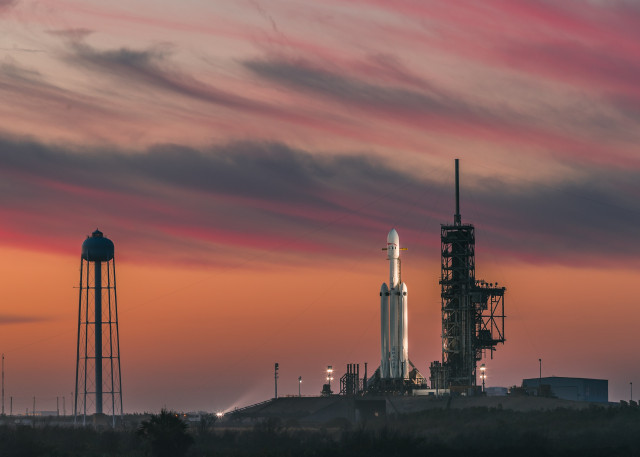If you’re looking for a travel destination that is—quite literally—out of this world, perhaps you’ll consider booking a trip through outer space. “Space tourism” has become a trending topic in the travel industry, as several companies, including Elon Musk’s SpaceX, Richard Branson’s Virgin Galactic, and Jeff Bezos’s Blue Origin, sprint to perfect their intergalactic flight plans.
Here are five things you should know about recreational space travel.
1. Initially, there will be a huge cost factor.
Intergalactic exploration doesn’t come cheap. According to an article posted by NBCNews, a space flight could cost a private citizen “anywhere from $250,000 to tens of millions of dollars.” However, experts say the cost will eventually come down after the initial shock of space travel wears off. “Current fears by the public will subside as soon as the first successful lunch happens, and cost will come down at a rapid pace,” said Eldad Boker, Ed.D., a travel and tourism professor and online instructor at Johnson & Wales University.
2. The first trips will be very brief.
The first space tourists will participate in “suborbital” travel only. According to Travel & Leisure, these will be very quick trips up past the Kármán Line, which “separates Earth and space, which is about 62 miles up,” before the craft immediately comes back down to Earth, sometimes in minutes. Experts say the future of space travel could someday include longer stays and orbital flights, but for now, interested parties should expect these “simple” voyages.
3. Space tourism will be similar to other space flights.
Much like NASA space flights, SpaceX, Blue Origin, and Virgin Galactic all expect to offer a stellar ride experience—including supersonic speeds, breathtaking g-forces, and moments of weightlessness—to customers for varying prices and lengths of time. So far, none of the programs have been completed or tested on humans.
4. It’s unclear how many travelers would actually be interested in booking trips.
Many Americans are on the fence about whether or not they would blast off into space if given the opportunity. According to a survey conducted in the spring of 2018 by the Pew Research Center, 58 percent of Americans said, “they would not want to orbit the Earth” in a spacecraft. Interestingly enough, 63 percent of Millennials said they would be interested—compared to the 27 percent of Baby Boomers who feel the same way. Of those who said they were not interested, an equal number of people (28 percent) say the trip would be “too expensive,” “too scary,” or that their “age or health wouldn’t allow it.”
5. Experts expect space flights could have several major socioeconomic impacts.
Aside from the obvious cost factor and the need to muster up the courage to board a space flight, it is possible that these types of excursions will not even be available to the public in the near future. If they do become mainstream, consumers can expect several positive benefits that will be attributable to recreational space travel. According to Boker, the trend could positively affect life on Earth by creating new jobs, help educate citizens about the universe, pave the way for extraterrestrial exploration, and build a new solar-based energy infrastructure.
For more information on pursuing your BS – Tourism & Hospitality Management degree at Johnson & Wales University College of Online Education, complete the “Request Info” form on this page or call 855-JWU-1881 or email [email protected][email protected].
